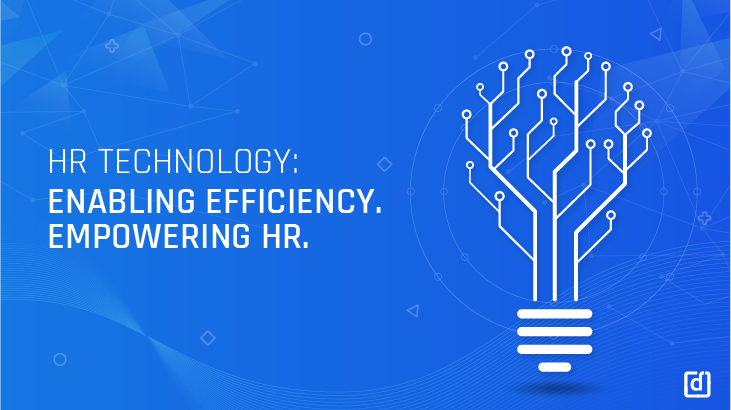
Like any other process in an organization’s framework; HR too depends on a lot of process compliance and paperwork. However, the downside is that HR as a function has always been restricted to that. Extensive paperwork, lack of automation, and gaps in communication with the employee as well as other departments in the organization are some factors that have tied HR function down. Thus, preventing it from achieving its complete potential and value for decades. But with developments in technology and rapid business process automation, HR stands empowered today. Empowered to vouch for change. And empowered to take rapid strides towards the departure from such stereotypes and norms.
HR Technology; true to its name; is the technology for HR. It is essentially the bridge that is transforming HR from a controller of processes to an enabler of efficiency and growth of the employee.
Here are some ways in which HR can leverage technology to cast a measurable dent in the framework of such orthodox, rigid notions:
1.More Than The Compliance Cop:
As software takes over the mundane and repetitive paperwork, HR can play the more important, and strategically valuable roles in the organization. And the impact this has on areas like onboarding, talent acquisition, talent management, etc. is tremendous! This helps HR retain the human touch of the HR function and connect better with the employee during crucial parts of the employee lifecycle.
2. Matters That Matter:
Be it business or our personal lives, in order to be important, things must be relevant. HR Tech has made it easier for HR to be relevant to the employee. Be it through increased transparency, real-time feedback, or extensive data mining and analysis, employees can be a lot more vocal about things that truly matter to them. In a broader perspective, data can now be accessed at all levels of hierarchy and data-backed decision making becomes natural. Organizations that no longer rely on a hierarchy based decision-making system are ones that actively engage their employees and are always empowering them even at an entry level.
3. Expectations:
Defined By Experiences: The kind of experiences HR function offers to its employees as well as business partners sets a bar for the expectations people have from HR. By providing data backed insight at every level, HR Technology also facilitates better human capital management to provide an overall superior experience for the employee.
And by contributing towards value addition to the organization, HR can mark a departure from the stereotypes it has conventionally been associated with.
What are some HR domain-specific areas where HR Tech can help?
1. Recruitment: With digital data keeping and analysis, passive recruitment has been revolutionized. HR Tech allows the HR manager to keep a check on candidates that are not actively looking for a job but might be a valuable asset to the organization when they do. E-examinations, aptitude and competency analysis also paves the path for successful learning and development programs the employee can participate in.
2. Self-service Tools: Easy access to data using Employee Self Service (ESS) allows employees to be self-sufficient in maintaining their HR-related records. It helps them account for information with minimal interaction with the HR. From time and attendance, to payroll, to performance management; it can give them much-needed instant access, and a holistic view of details about the available benefits and let them sign up for plans and services that will work best for them.
3. Learning and Development: Even before the employee is onboard, e-learning can start. Employers today are using this functionality to enhance the skill set of their new hire and continue to do so even after the person is on board! Learning Management Systems (LMS) and Learning Content Systems (LCS) are effective platforms for the employees and employers to track the progress of their learning endeavors.
4. Payroll Tools: While automated payroll systems are a very common occurrence in the enterprise space, their integration with an HRIS for the overall enhancement of the process is yet to be explored fully. Integration with intelligent systems of record can help do a number of tasks under the umbrella of employee benefits and compensation more efficiently. For e.g. it helps employers compare their compensation structure with the market and design better reward plans to motivate their employees.
Darwinbox is a platform that is being leveraged by enterprises all over India to fuel the ambition and drive strategic goals of the organization. Today, we empowered 250,000+ employees spread over 100+ companies to understand and leverage HR better! Click here to know how.


Speak Your Mind